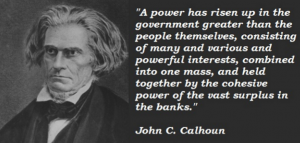Investigators discovered photos of nude children, estimated to be as young as 8, in an email account they said was associated with South Dakota billionaire T. Denny Sanford, according to previously sealed records released Thursday.
The records — which ProPublica had been fighting to make public for almost three years — shed light on the origins of the child pornography investigation into Sanford, a credit card magnate and philanthropist who has donated vast sums to children’s causes.
In 2020, ProPublica first reported that South Dakota authorities were investigating Sanford and had referred the matter to the U.S. Department of Justice. Last year, the South Dakota attorney general announced it closed its investigation without filing charges.
The status of a federal investigation into the matter remains unclear. A DOJ spokesperson declined to comment Thursday when asked whether the department’s inquiry remains open.
The investigation of Sanford started after AOL’s parent company sent a tip to the National Center for Missing & Exploited Children, which passed it on to authorities in South Dakota, according to the new documentation. The center is a private nonprofit that operates a tip line where people and companies can report images of suspected child sex trafficking and abuse. The organization’s staff reviews the tips and refers them to law enforcement.
The material provided to the organization included 36 image files with child pornography in an AOL account that investigators linked to Sanford, according to the documents released Thursday.
Sanford’s attorney, Stacy Hegge, released a statement Thursday that said various other people had access to Sanford’s electronic devices and that prosecutors ultimately decided against filing criminal charges in the case. “Mr. Sanford appreciates that after a thorough investigation the authorities concluded there exists no prosecutable offense. Here, because there is no prosecutable case or further action to be taken, the court records being released contain only allegations. These preliminary allegations were provided to law enforcement prior to law enforcement’s exhaustive investigation and its realization that various individuals had documented access to the electronic devices at issue, including signs of hacking. While some claim releasing affidavits that reiterate these allegations constitute transparency, releasing preliminary allegations made prior to completing the full investigation only misinforms people and obscures the investigation’s conclusions that no prosecutable offense occurred.”
Sanford’s lawyers did not respond to further detailed questions.
Investigators with the South Dakota attorney general’s office obtained five search warrants in 2019 and 2020 for Sanford’s email, phone and internet data. The newly released documents are investigators’ sworn affidavits in support of those warrants.
According to the new records, agents believed they had found probable cause that a crime had occurred involving Sanford, who is one of the nation’s leading philanthropists.
The affidavit said that while many of the images were duplicates, an agent had found three unique photos, all of nude girls. The agent estimated one to be between 8 and 12 years old, another to be between 12 and 15, and a third to be between 10 and 15.
The law enforcement records include descriptions of the images. One photo is of “a nude juvenile female standing facing the camera. Her breasts and vagina are visible in the image. There is snow in the background and her hair is brown. The estimated age of the juvenile is 8 to 12 years old.”
The records seem to suggest Sanford’s email account sent the emails with the images, but because of redactions, it’s not clear. The identity of the email account receiving the message was also redacted. At least one of the images, according to the agent’s description, appears to be a photo taken of another screen.
“I feel that the content of the image files described above fit the definition of child pornography as described in South Dakota Codified Law,” an investigator wrote.
Geolocation data the agents reviewed pointed to locales where Sanford has homes, including La Jolla, a suburb in San Diego; Scottsdale, Arizona; and Sioux Falls, South Dakota.
ProPublica won access to the search warrants in the case and the affidavits detailing the cause for the warrants after litigation that reached the state’s highest court. Sanford unsuccessfully asked the courts to block release of the records, which are supposed to be publicly accessible under state law, and constrain ProPublica’s reporting on the case. He was represented during part of that time by South Dakota’s ex-attorney general, whose former office launched the investigation, and who has since again been elected to the job again.
ProPublica’s general counsel, Jeremy Kutner, lauded the release of the records: “We are delighted that the court has, for the second time, vindicated the public’s essential rights to monitor law enforcement and the criminal justice system, rights clearly enshrined in law. But the baseless delays foisted on the public by Sanford and his attorneys throughout this case are a testament to how fragile those rights can be. This ruling is a reminder that the predilections of the powerful should never override the law.”


 Whistleblower Urges Probe Of Law Firms’ Huge Payments To Chief Justice’s Wife
Whistleblower Urges Probe Of Law Firms’ Huge Payments To Chief Justice’s Wife